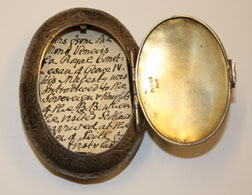I was at my boring desk job today, and my co-workers were talking about the Tiger Woods scandal in my earshot. They know a lot more than I do about the Tiger Woods scandal, because I haven't read a single article past the headline - because I really don't care. I don't play or watch golf, and most athlete/Hollywood celebrity scandals are tediously interchangeable, and Tiger Woods and I just don't have much influence over each other's lives. I don't feel a need to start caring about him now; if you're reading this outside of the U.S. and don't know what I'm talking about, Google him.
But one of my co-worker's more incredulous comments made me cringe with silent frustration: "And he's married to a supermodel!! And he cheated on her anyway!"
Okay, so here's the thing about sex with more than one person:
Sometimes it really has nothing whatsoever to do with the original partner. I'll admit, of course, sometimes it does. Sometimes people first fall out of love with their "primary" significant other for any number of examples of incompatibility, and they stick around a doomed relationship either because they're too afraid to be alone until they find the next partner, or because they're too afraid to hurt the other person's feelings (which invariably backfires), or because of habit. Then they
lie to their partners or
spite them, which is where the real betrayal happens. I take it (from osmosis) that Tiger Woods lied to a lot of women, which makes him a
liar. The women who trusted him have every right to feel outrage toward a liar, and I wouldn't begrudge any self-righteous co-worker banter over that.
But, writing as an honest adulteress, sometimes people just have sex with more than one person because they're attracted to more than one person - not because there's anything at all wrong in the original relationship. No one would seriously argue that having the Beatles or show-tunes on my iPod means that I must not actually love 1990's alternative music after all. And most people concede that it is possible to love more than one parent, more than one child, or more than one friend. I have sex with my boyfriend because I enjoy sex with my boyfriend, not because I
don't enjoy sex with my husband. I quite emphatically enjoy sex with both of them, and I also enjoy that their bodies and specific preferences are different, because I enjoy variety. We're not insulting each other by rejecting monogamy. I like when my my partners are dating smart hotties; egotistically I like that they have good taste in women.
Yes, of course, cheating is different. But how many cheaters realize that honest non-monogamy exists as an alternative? I cheated on an ex a few times before I had ever heard of polyamory, because I didn't know then how else to handle being in love with two people. Would Tiger Woods have been more honest with the women in his life if he had had less justification to assume they'd react so very badly? Maybe and maybe not, but I wouldn't know; we're not that close.
Furthermore, there's really no correlation between supermodels and better marriages. Physical beauty is useful for initially attracting people, but it doesn't do much for sustaining meaningful relationships. Physical beauty doesn't even necessarily correlate with better sex; beauty doesn't signify sexual confidence, or experience, or creativity, or generosity, or compatible kinks, or stamina, or empathy, or any number of qualities that matter more to sexual satisfaction than looking pretty in photographs does.
I appreciate jaw-droppingly-hot TV stars like
Gale Harold and
Alyson Hannigan as much as the next person, but I still don't imagine that they're sexy enough to make monogamy sound tempting to me.
So... how is a modeling career in any way relevant?
I'm not sure, but I do know how often the banter of monogamous people feels alienating to me.
 I love stumbling across alternative-sexuality history lessons. I love it because we're absent from most history accounts, due both to censorship and to our predecessors' desire for their own privacy. And then sexually liberated people and conservative reactionaries end up with the same misguided belief that rampant, shameless sexuality is something Westerners invented in the 1960's.
I love stumbling across alternative-sexuality history lessons. I love it because we're absent from most history accounts, due both to censorship and to our predecessors' desire for their own privacy. And then sexually liberated people and conservative reactionaries end up with the same misguided belief that rampant, shameless sexuality is something Westerners invented in the 1960's.
